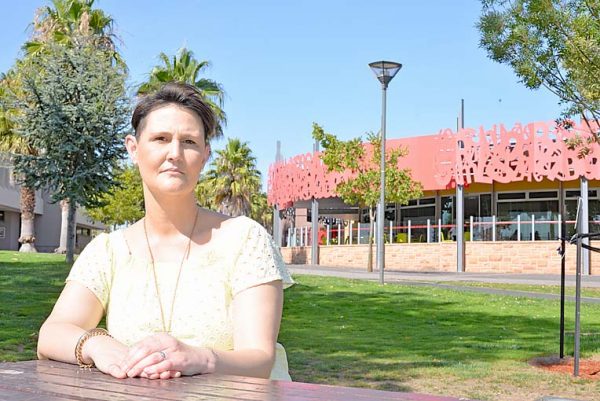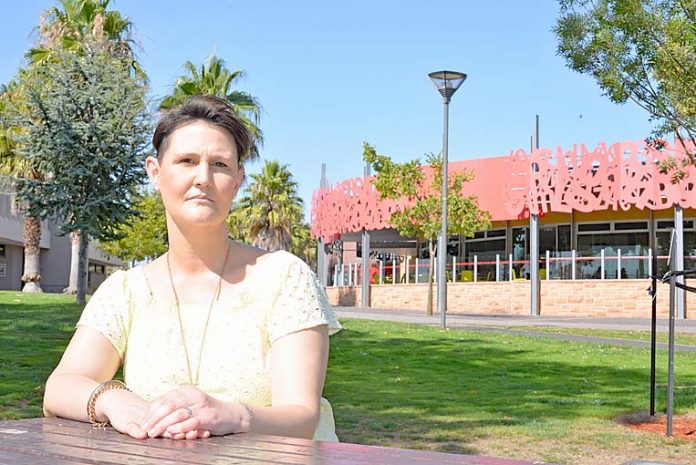
MOUNT Gambier woman Alicia Millhouse is calling for a Royal Commission into how medical devices such as transvaginal and pelvic mesh are pre-marketed, approved, reviewed and monitored in Australia.
Ms Millhouse brought the issue to Federal Health Minister Greg Hunt last Wednesday at a public forum held in Mount Gambier.
“We ask you that you (Mr Hunt) push for full funding for those maimed by mesh and just like the banking royal commission has clearly highlighted to the Australian public and parliament, that organisations, governing bodies and companies are unable to self regulate or adhere to ethical principles,” Ms Millhouse said at the forum.
Ms Millhouse has joined other Australians with lasting negative impacts caused by pelvic and transvaginal mesh implants in calling for federal funding to fly-in international health experts to offer education for gynaecologists and urogynaecologists.
“Many of the meshes are not able to be fully removed by any surgeons in Australia,” Ms Millhouse said.
“Believe me, I have sat in their rooms, asked and at times I have pleaded and begged.”
Ms Millhouse underwent surgery in 2011 to insert mesh implants to address an underlying health issue, but has since experienced multiple side effects she claims she was never warned about.
“I had excruciating pain, never ending urinary tract infection, abscess, fistulas and even a significant weight loss due to the side and after effects of the mesh implantation surgery,” Ms Millhouse said.
Among the first South Australians to speak out about the transvaginal mesh implant, Ms Millhouse has called on the government to take action.
“I have lost trust in the medical field,” Ms Millhouse said.
“We want full federal funding for these women who, unknown to them, were going into a surgery that would change their lives on so many levels by a medical device that should not have been approved by the Therapeutic Goods Australia (TGA) and unfortunately, some women have paid the ultimate price with their lives.”
Ms Millhouse believes TGA, which receives federal funding, should have taken quicker action to take the product off the market.
After experiencing excruciating pain, Ms Millhouse travelled to gynaecologists in Adelaide who found the mesh she had implanted had eroded through the tissue and exposed itself.
“I begged with him to remove all the mesh and he told me it was impossible, because there is also four arms of the mesh that are implanted which anchor it,” Ms Milhouse said.
For Ms Millhouse, the only option was partial removal which led to her needing more surgery six months later after the mesh had eroded again, this time causing an abscess.
“I conducted my own research and found a doctor in the United States who had completely removed the mesh before, so we re-mortgaged our house.”
Dr Dionysios Veronikis, the American doctor who removed Ms Millhouse’s mesh, has conducted over 400 of the procedures.
“The initial time of the surgery was four hours,” Ms Millhouse said.
“But in the end it took seven and a half.”
Now Ms Millhouse is calling on the government to fund Dr Veronikis to come to Australia and teach surgeons how to fully remove the mesh.
“We have women who would gladly get on the surgical table and be an example for Dr Veronikis to teach,” Ms Millhouse said.
“That is how desperate they are to remove this mesh and it is still really important to get that mesh out because to be honest, I do not know if I would still be here if I did not get it out.”
Ms Millhouse is encouraging any women struggling with mesh implants to join the South Australian Pelvic Mesh Support Group and gain the support she believes is highly needed.








